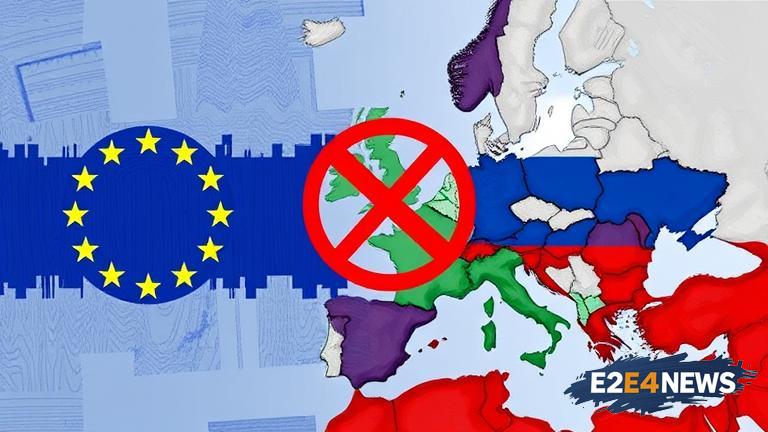The European Commission has taken a significant step towards reducing the European Union’s dependence on Russian energy by proposing a ban on Russian oil imports. This move is part of a broader effort to impose economic sanctions on Russia in response to its ongoing invasion of Ukraine. The proposed ban would apply to all imports of Russian crude oil and petroleum products, and would be implemented over a period of several months to allow EU member states to adjust their energy supplies. The European Commission has also proposed a ban on Russian oil imports by pipeline, which would affect several EU member states that rely heavily on Russian oil. The proposed ban is part of a sixth package of sanctions against Russia, which also includes measures to restrict Russian banks’ access to the international financial system and to ban Russian ships from EU ports. The European Commission has stated that the proposed ban on Russian oil imports is necessary to reduce the EU’s dependence on Russian energy and to increase pressure on Russia to end its aggression in Ukraine. The proposed ban has been welcomed by several EU member states, including Poland and the Baltic states, which have been strongly critical of Russia’s actions in Ukraine. However, other EU member states, such as Germany and Italy, have expressed concerns about the potential impact of the ban on their economies. The European Commission has stated that it will work with EU member states to mitigate the impact of the ban and to ensure a smooth transition to alternative energy sources. The proposed ban on Russian oil imports is also expected to have a significant impact on the global energy market, with potential consequences for energy prices and supply chains. The European Commission has stated that it will continue to monitor the situation and to take further action as necessary to support Ukraine and to pressure Russia to end its aggression. The proposed ban on Russian oil imports is a significant escalation of the EU’s response to the conflict in Ukraine, and reflects the EU’s commitment to supporting Ukraine and to upholding international law. The European Commission has also stated that it will work with other international partners to coordinate a response to the conflict in Ukraine and to impose further sanctions on Russia. The proposed ban on Russian oil imports is expected to be approved by EU member states in the coming weeks, and will come into effect shortly thereafter. The European Commission has stated that it will continue to review and update its sanctions against Russia as necessary, and will take further action to support Ukraine and to pressure Russia to end its aggression. The conflict in Ukraine has had a significant impact on the global economy, with consequences for energy prices, trade, and economic growth. The European Commission’s proposed ban on Russian oil imports is a significant step towards reducing the EU’s dependence on Russian energy and towards increasing pressure on Russia to end its aggression in Ukraine.
